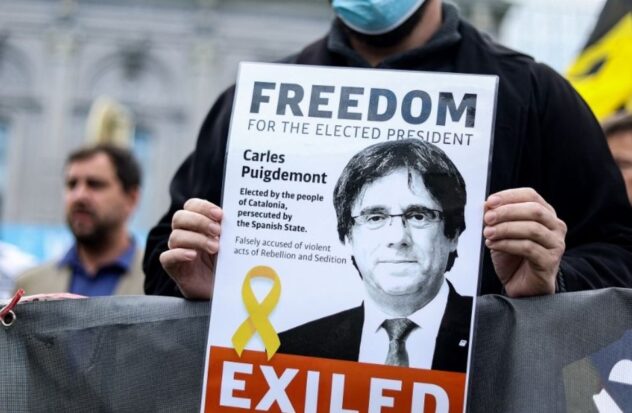MADRID.- The Supreme Court Spanish announced the dismissal of the investigation into Catalan independence leader Carles Puigdemont for an alleged crime of terrorism in the so-called “Tsunami” case, after the judge leading the investigation made a mistake with the deadlines.
“The judge (…) has agreed to the provisional dismissal and archiving of the case,” the Supreme Court said in a statement.
Puigdemont remains charged with embezzlement and high treason, two crimes that are not yet declared covered by the amnesty law for Catalan separatists promoted by the socialist government of Pedro Sánchez, and approved in May by Congress.
The parties have three days to appeal the decision of the Supreme Court judge.
The case was closed and focused on the protests that took place in Catalonia in 2019 against the convictions of several pro-independence leaders for the failed attempt at secession two years earlier.
The protests, which saw demonstrators try to take over Barcelona airport and lead to violent clashes with police and damage, were coordinated by an anonymous digital platform called Tsunami Democrático, which the judge suspected was behind Puigdemont and other pro-independence leaders.
The judge misses the deadline
On July 30, 2021, one day later than allowed, the judge in the Tsunami case, Manuel García Castellón, decided to extend the investigation period, a decision that was appealed by one of the people under investigation.
A Barcelona court ruled in favor of the suspect and forced the judge to decide whether to go to trial with the evidence he had up to July 29 three years ago or to close the case.
On Monday, García Castellón decided to throw in the towel and close the case.
“I find it surprising that a judge of García Castellón’s experience and ‘bad intentions’ has made such a stupid mistake,” Puigdemont said ironically on Tuesday on the social network X.
The separatist leader left Spain in 2017 after the failure of the independence attempt, evading Spanish justice. Most of his colleagues in the regional government in that movement were convicted and later pardoned by Sánchez.
To cover the more than 400 separatists tried or indicted in recent years, the controversial Amnesty Law was then approved, which was the price that Pedro Sánchez paid to be re-elected as President of the Government in November, thanks to the support of the 14 deputies of the Catalan separatist parties.
During the process, several judges expressed their reservations about the amnesty, which has been heavily criticised by the right-wing and far-right opposition, who consider it unconstitutional and which could be challenged before the European courts.
Puigdemont said he would return to Spain if he could be sworn in as Catalan president again after the regional elections on May 12, but he does not have the necessary support at the moment – his party came second – and remains the subject of an arrest warrant for the alleged crimes against him.
Source: AFP


